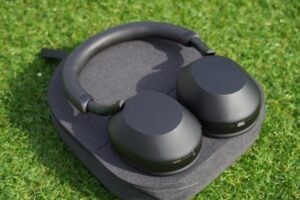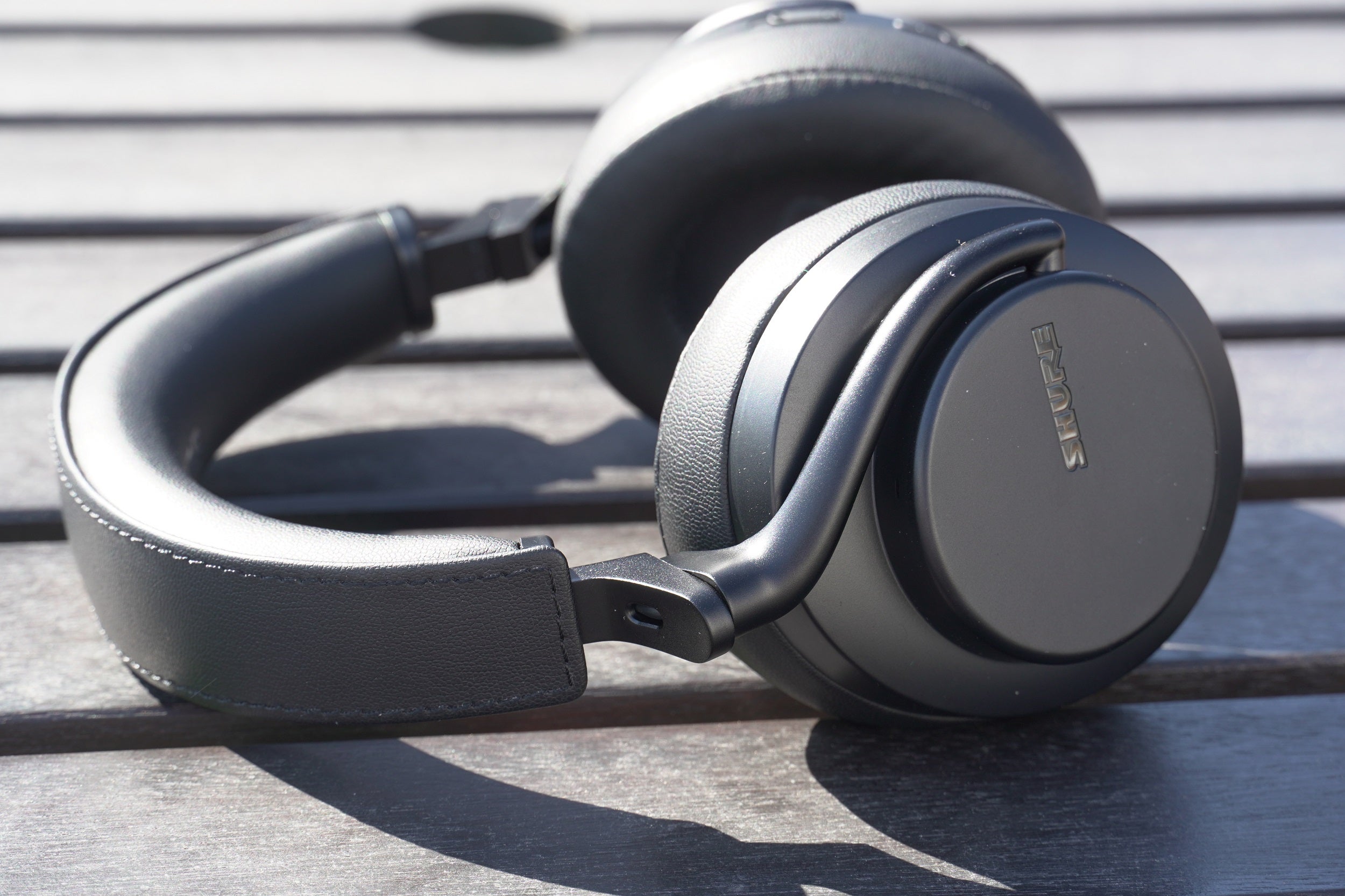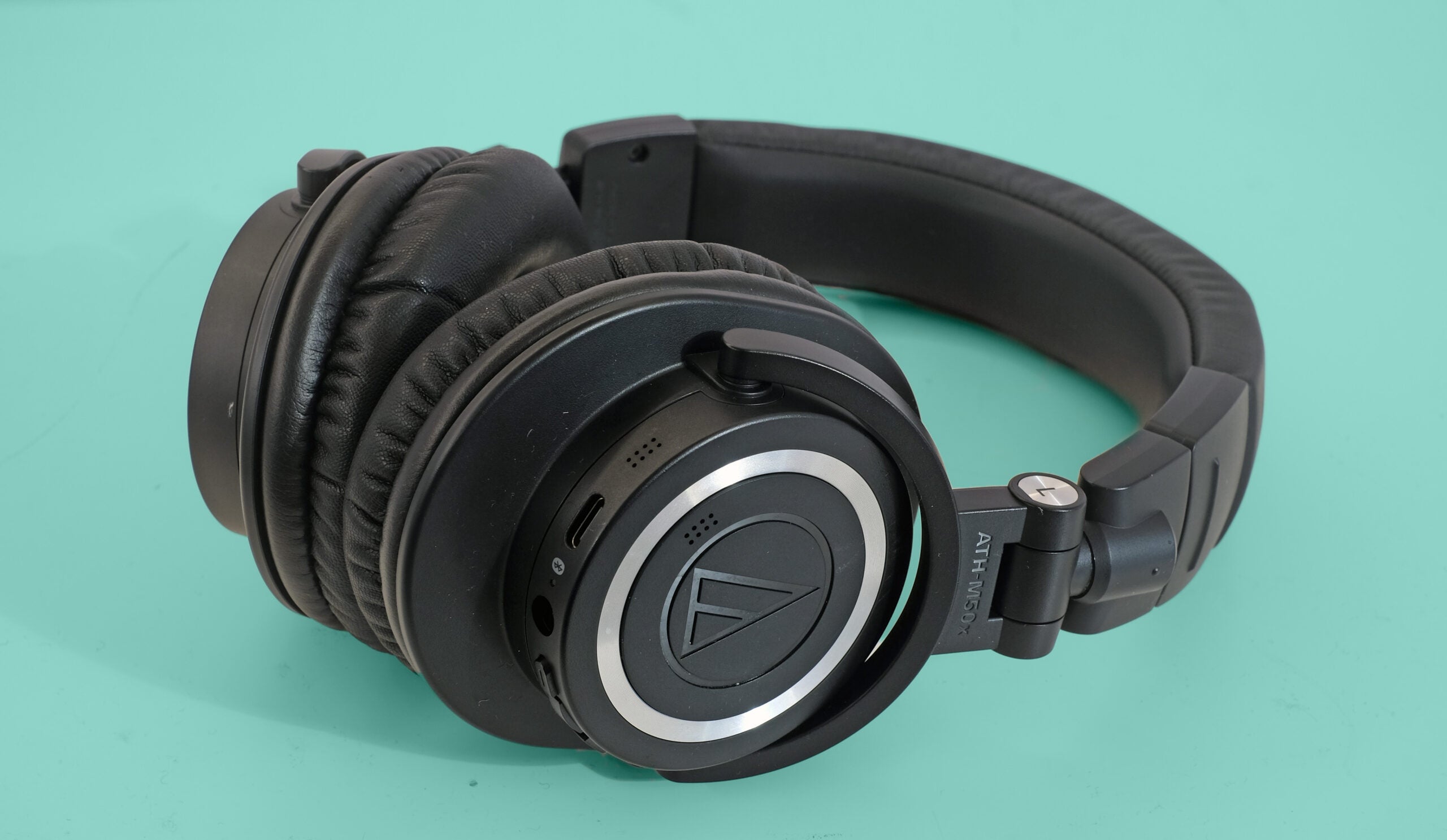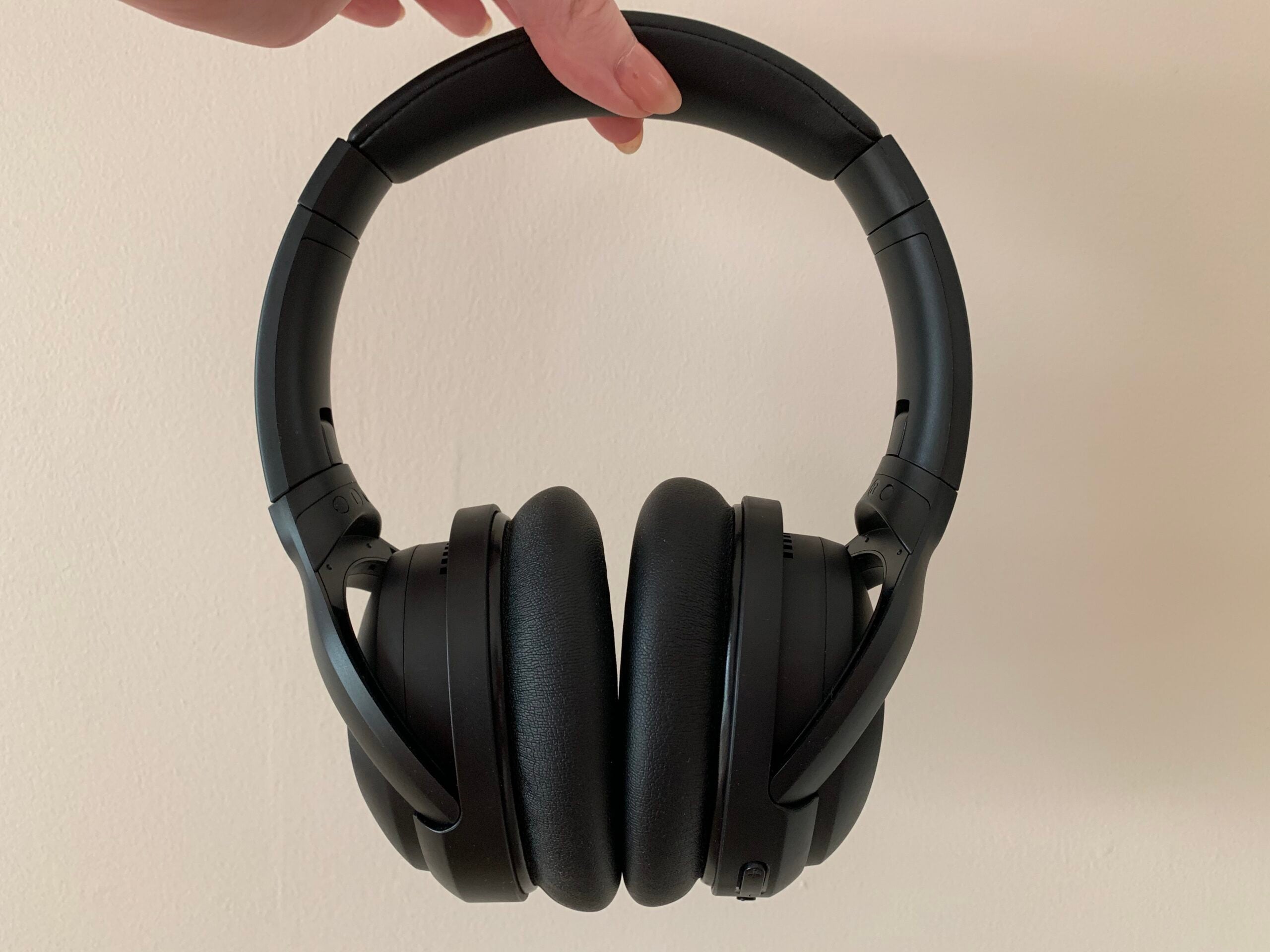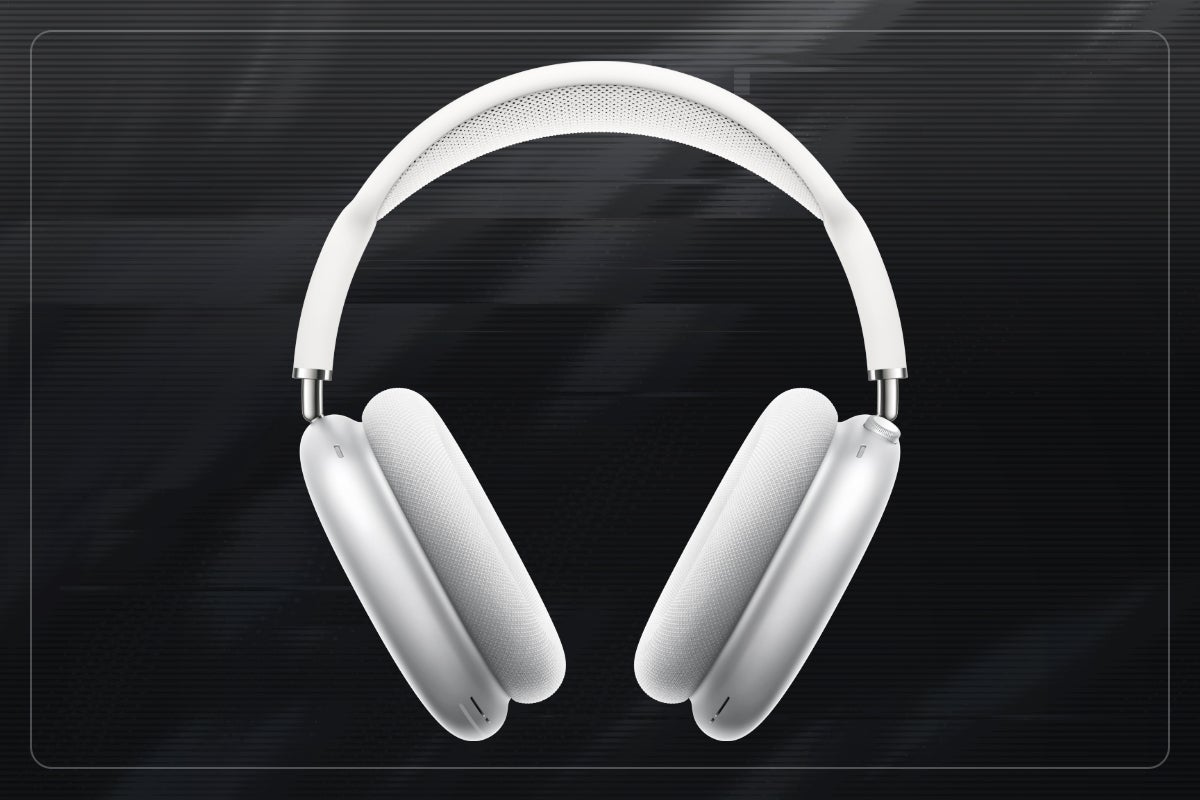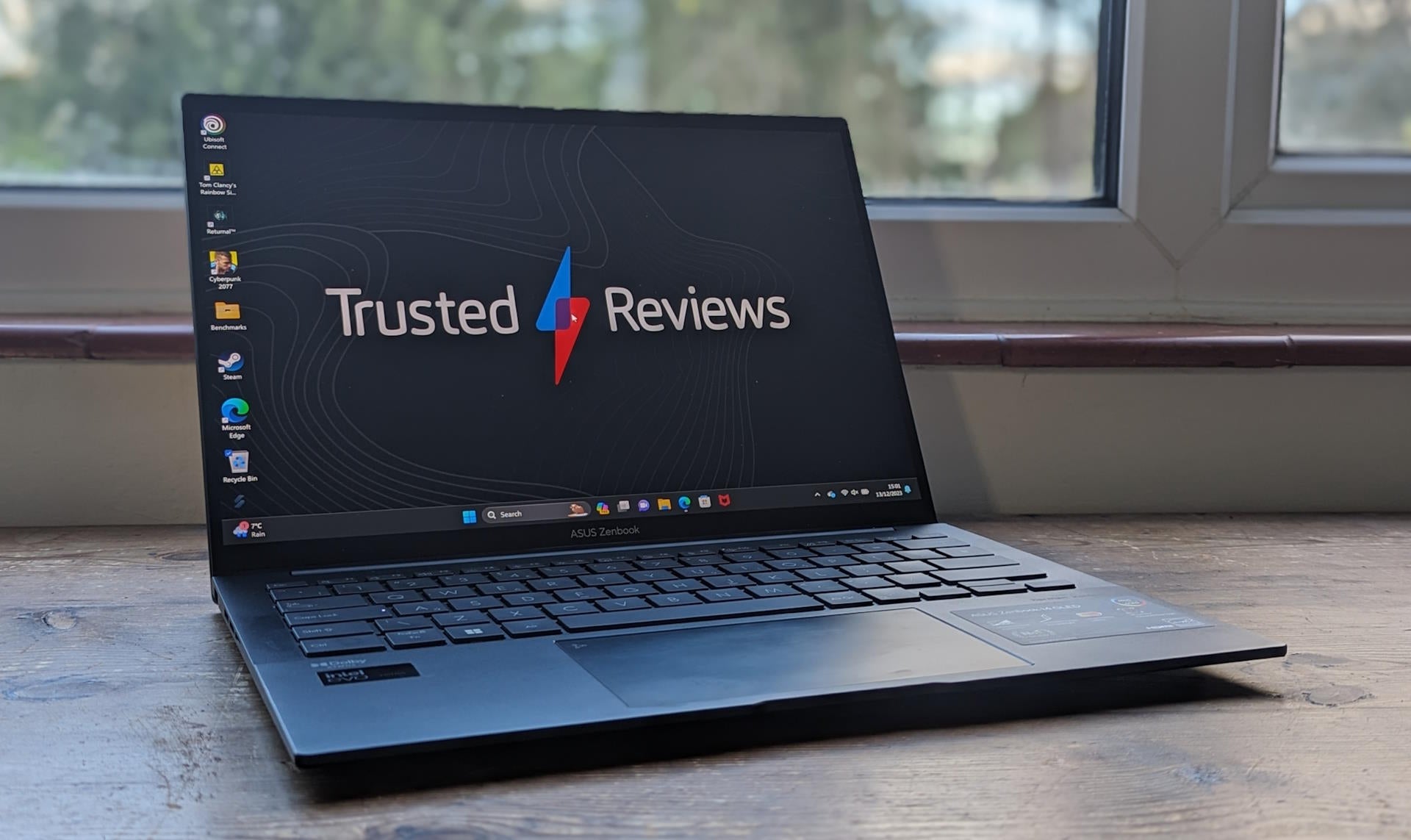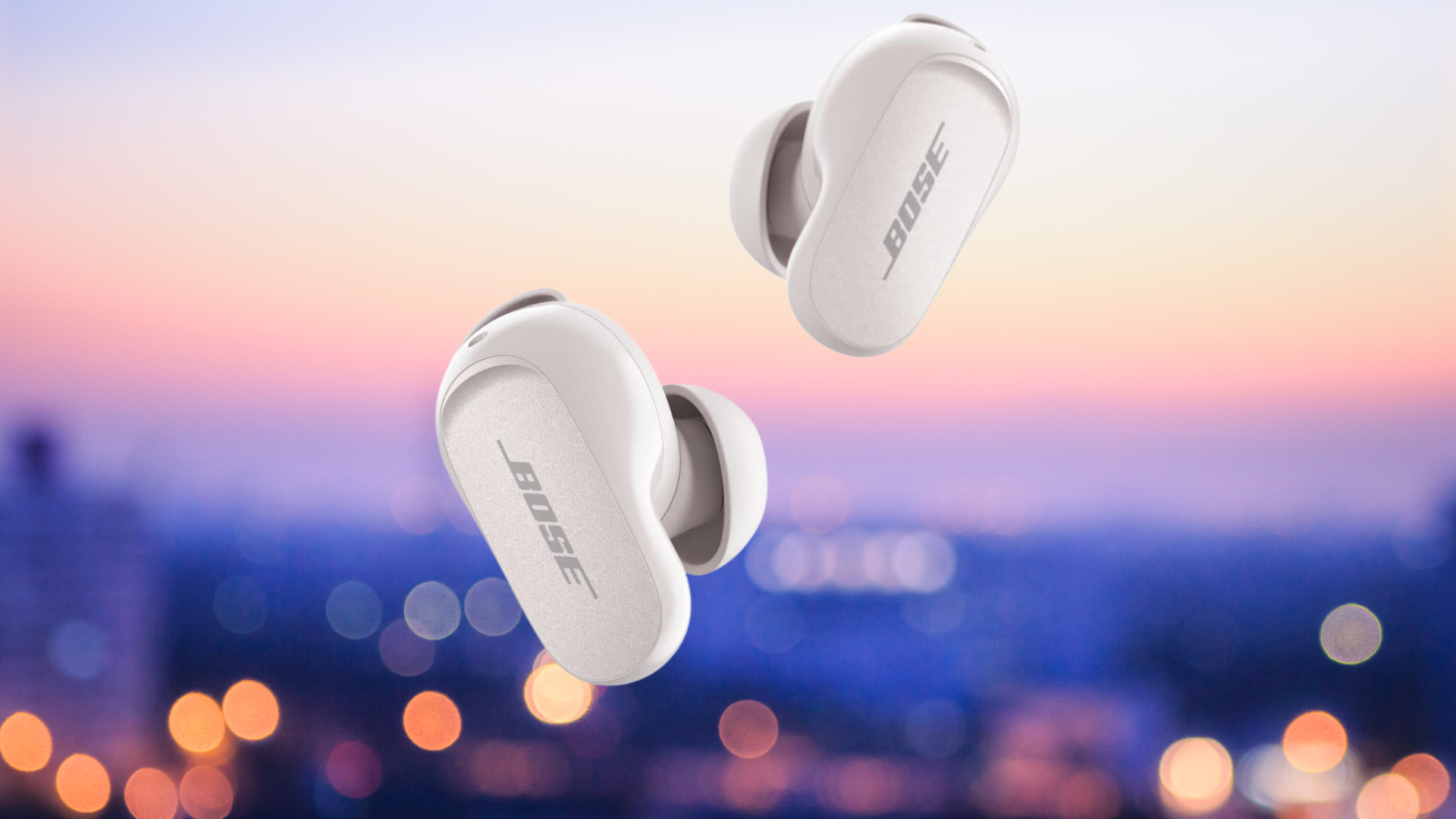Best Over-Ear Headphones 2024: Over-ears for kids, commuters, and the office
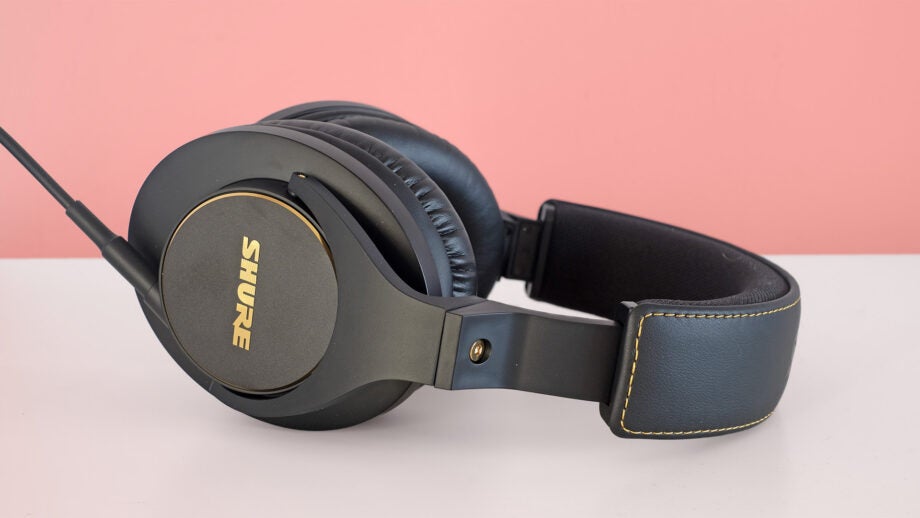
If you’re not a fan of true wireless, then we’ve got a selection of headphones for a variety of uses in this list of the best over-ear headphones.
We’ve put together this list to help you choose the best pair of over-ears. When we review headphones we look the quality of the design and construction, feature set, and audio performance to give you a clearer idea of whether they offer the performance they say they do.
A good pair of headphones is an essential piece of tech for any music lover, traveller, or office user. The over-ear style is one of the most effective for enveloping the ear and blocking out unwanted noise, with or without the help of ANC. Many also find over-ears to be more comfortable than on-ear or in-ear headphones.
This list includes a pair of over-ears for a variety of situations, including the best pair for kids, the best wireless over-ears, the best premium model, what’s best for office use, and the best cans to use in a studio.
If you’re not settled on over-ears just yet, you may want to check out some of our other headphone lists. These include the best wireless headphones and the best wireless earbuds, while if you’re interested in blocking out distractions then best noise-cancelling headphones might be more up your alley.
Anyone of the sporting persuasion should check out our best running headphones and for a complete overview, check our best headphones page.
Best over-ear headphones at a glance:
- Best wireless over-ears: Sony WH-1000XM5 – check price
- Best premium over-ears: Meze Audio Liric – check price
- Best studio over-ears: Shure SRH840A – check price
- Best over-ears for children: Planet Buddies Volume Limited Headphones – check price
- Best over-ear headphones for iOS: Apple AirPods Max – check price
- Best over-ears for the office: Poly Voyager Surround 80 UC
How we test
Not just anybody can review a pair of headphones. You don’t need superhuman hearing to tell what’s good, but you do need to know what to listen out for.
Our headphone tests are done by some of the best and most prolific reviewers in the industry, with years of experience listening to everything from the plasticky freebie earbuds that come with your smartphone, to five-figure beasts of glass and marble. We love music and we want your tunes to sound good, too.
So we listen every pair of headphones we can get on or in our ears. We use a variety of sources, from basic MP3s playing on a laptop to high-quality tracks on dedicated hi-res audio players.
Our test tracks are wide-ranging to give headphones a thorough challenge. They’re also familiar, so we know every track backwards, and we know which bits might trouble the lesser performers.
We listen again and again, and we do that for weeks in case the sound changes – because it usually does. Then we’ll listen to similarly priced rivals and come up with a verdict that reflects the performance and features for the money.
- Volume limited to protect small ears
- Fun designs
- Affordable prices
- Poor tonal balance
- All the pairs I tested require a 3.5mm jack
- The multifunction button doesn’t work with some devices
- Excellent comfort
- Musical, rich audio performance
- Impressively clean and natural noise cancellation
- Superb Ambient Mode
- Great call quality
- Non-foldable design
- Connection gets choppy in busy areas
- Transparent and revealing performers
- Premium construction
- Cosy to wear
- Expensive
- Needs high quality tracks and sources
- Not strictly portable
- Flat enough for mastering use
- A better-looking, more practical design than the previous version
- Enjoyable enough to use as all-round home headphones
- Low-mid bump affects separation and dimensionality
- Single semi-proprietary 3m cable limits their versatility
- Wonderful, versatile sound
- Many clever design elements and strong build quality
- Spatial audio can be immersive for the apps that support it
- Strong connection to the Apple ecosystem
- Lack of ‘off’ button is annoying
- The included case is bad in just about every way
- Heavy and can’t be folded down
- The high price can’t be ignored
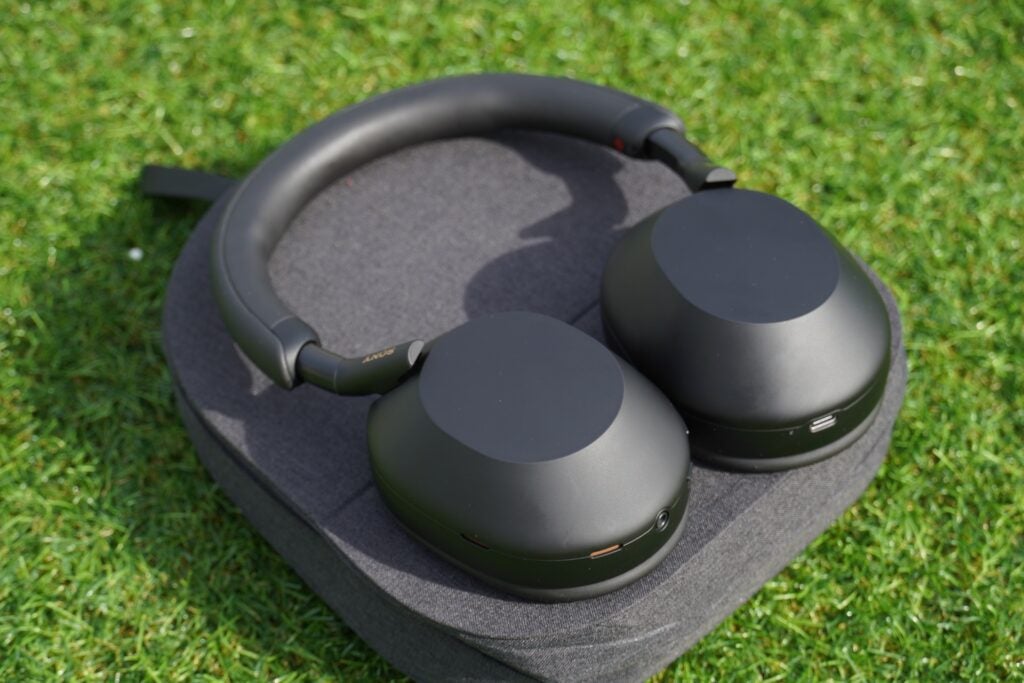
Sony WH-1000XM5
Best wireless over-ears
Pros
- Excellent comfort
- Musical, rich audio performance
- Impressively clean and natural noise cancellation
- Superb Ambient Mode
- Great call quality
Cons
- Non-foldable design
- Connection gets choppy in busy areas
The Sony WH-1000XM5 are Sony’s latest premium wireless over-ears, following up on the success of their popular predecessors. The biggest change from the previous model is how they look. They sport a modern modern look to, and ditch the ability to be collapsed, a change that’s meant to help the noise cancellation peformance, which we found reaped benefits with less noticeable wind noise detected than on the WH-1000XM4.
They’re comfortable to wear, with the redesigned earpads and heading creating a solid enough clamping force and seal; while at around 255g, they’re one of the lightest noise cancelling over-ears around.
The noise cancelling itself is excellent, the call quality is class-leading, while the battery life remains the same as before, it 30 hours with ANC on matches the likes of the B&W Px7 S2 and is better than either the Bose QuietComfort 45 and AirPods Max.
The Speak-to-Chat feature that brings convenience, pausing music when you’re talking. The Quick Attention mode allows you hear your surrounding environment, and there’s built-in voice assistance available from both Google and Alexa. The Adaptive Sound Control detects and logs locations in the Sony Headphones app, allowing you to build custom sound profiles based on the places you frequent. These headphones pack plenty of convienience for the everyday user.
When it comes to sound quality, there’s support for LDAC that’s useful for listening to higher quality tracks from streaming services. We found the midrange to be rich and detailed, the headphones feature a boost in the low and high frequencies over the XM4, with instruments sounding better defined and more focussed. This all contributes to a performance that’s more refined sound than their immediate predecessor.
Reviewer: Kob Monney
Full Review: Sony WH-1000XM5
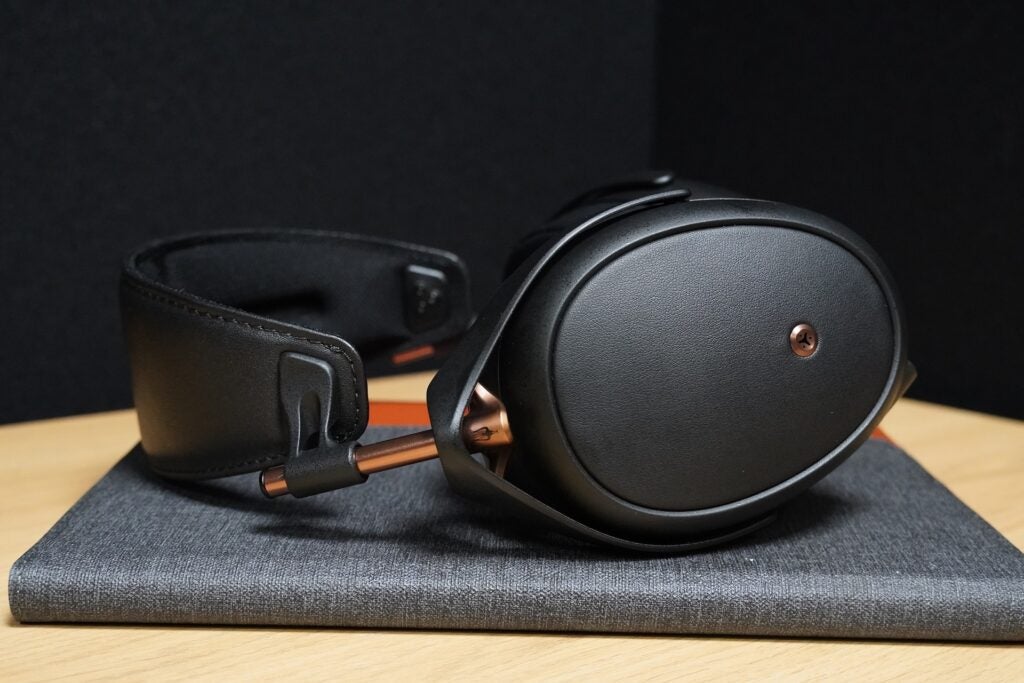
Meze Audio Liric
Best premium over-ears
Pros
- Transparent and revealing performers
- Premium construction
- Cosy to wear
Cons
- Expensive
- Needs high quality tracks and sources
- Not strictly portable
If you’re something with audiophile tastes we would recommend taking a look at the Meze Audio Liric. These are wired headphones (so no wireless support here) with excellent build quality, constructed from high-grade magnesium, leather and aluminium for a sleek minimalist look, The earcups are large in size, which makes them less suited for small heads, but they are comfortable to wear thanks to the padded ear cups that envelope the ears.
There aren’t as many features as you would get from a pair of wireless headphones, but the Liric have an impressively wide frequency response of 4Hz to 92kHz for better reproduction of low and high frequencies. This is filtered through Rinaro’s Isodynamic Hybrid Array M24 driver that uses the company’s Phase-X system that it claims improves spatial sound imaging for a more faithful reproduction. The Ear pad Air Flow (EAF) system is another feature that aims to optimise acoustic volume and reduce the size of the earcup chamber.
Audio performance is where the Liric shines. It’s a soundstage that’s big in scope and full of detail; the stereo image is brought close to the listener, which gives the impression of instruments and voices appearing much closer to our ears. The Liric are a revealing and transparent pair of headphones, so it would be wise to consider pairing them with an equally capable source such as an Astell & Kern SP2000T.
We found that with a capable source, bass levels improved by giving the headphone more detail to feed off on. If you want to hear your music in high quality, the Liric are a skilful, well-balanced pair of wired over-ears to consider. The $2000 / £1799 price is expensive, but they’re worth it for the quality of their performance. If, however, that’s chump change, then consider the even more impressive (but more expensive) Empryean II from Meze.
Reviewer: Kob Monney
Full Review: Meze Audio Liric
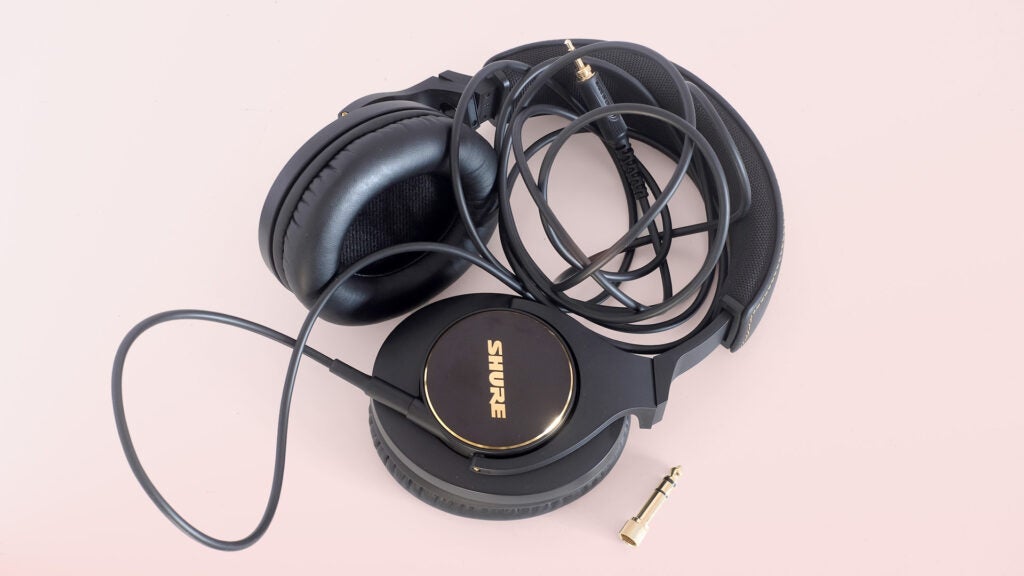
Shure SRH840A
Best studio over-ears
Pros
- Flat enough for mastering use
- A better-looking, more practical design than the previous version
- Enjoyable enough to use as all-round home headphones
Cons
- Low-mid bump affects separation and dimensionality
- Single semi-proprietary 3m cable limits their versatility
The Shure SRH840A are an affordable pair of home studio-grade reference headphones that are ideal if you value sound quality above all else.
They are the follow up to the SRH840, built from a mix of aluminium, plastic, synthetic leather and a fabric weave, with a redesigned headband that tracks closer to the shape of the head than that of their predecessor. As such, we found these improvements to be positive, ensuring good comfort as the breathable headband and firm ear cup pads enabled our reviewer to wear them for up to six hours with no obvious fatigue.
The headphones come with a long 3m cable, which limits their portability, making them well-suited for listening around the home but less ideal for using out and about. Given they are home studio-grade reference headphones, it wouldn’t make sense to use these outside of the home.
The sound of the SRH840A is similar to their predecessor with the same 5–25000Hz frequency response and low impedance for use with non-specialist hardware. They have the neutrality required of a pair of monitor headphones with some thickness in the upper bass and low mids to avoid sounding sterile. The bass is measured and punchy and the sound width is good, but we were less impressed by the sense of depth in the soundstage.
Reviewer: Andrew Williams
Full Review: Shure SRH840A
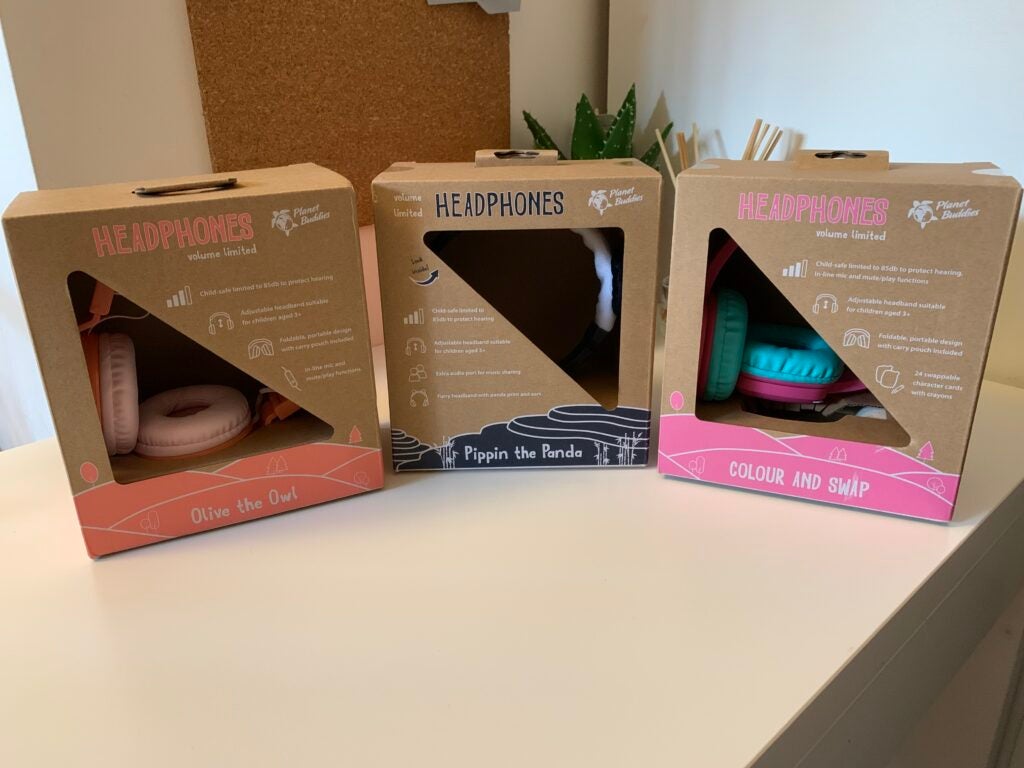
Planet Buddies Volume Limited Headphones
Best over-ears for children
Pros
- Volume limited to protect small ears
- Fun designs
- Affordable prices
Cons
- Poor tonal balance
- All the pairs I tested require a 3.5mm jack
- The multifunction button doesn’t work with some devices
If you’re a parent in need of a pair of over-ears suitable for children, we’d recommend giving the Planet Buddies Volume Limited Headphones a look.
We’ve tested the wireless version of these headphones and found them be effective, and the wired models are just as cute in appearance for the younger ones, but the headline feature here is that they are volume limited to 85dB. This is the volume level WHO recommend to protect small ears from developing noise-induced hearing loss.
The headphones come in a variety of adorable designs, from the vibrant Olive the Owls, to the eared Pippin the Pandas and the customisable Colour and Swaps. All are soft and adjustable and some fold up to slip into carry pouches as well. These headphones are quite light on features. The Olive the Owl and Colour and Swap pairs feature multi-function buttons on their cables, while the Pippin the Pandas actually have two ports so kids can listen to music and watch movies with friends.
We did find the volume limit subdued some of the dynamism produced by these headphones, and there’s much in the way of detail but the bass still has a good amount of presence and it feels like a worthy trade off to protect your kids ears. For adults, consider the PuroPro Hybrid ANC headphones which also have volume limited technology inside.
Reviewer: Hannah Davies
Full Review: Planet Buddies Volume Limited Headphones
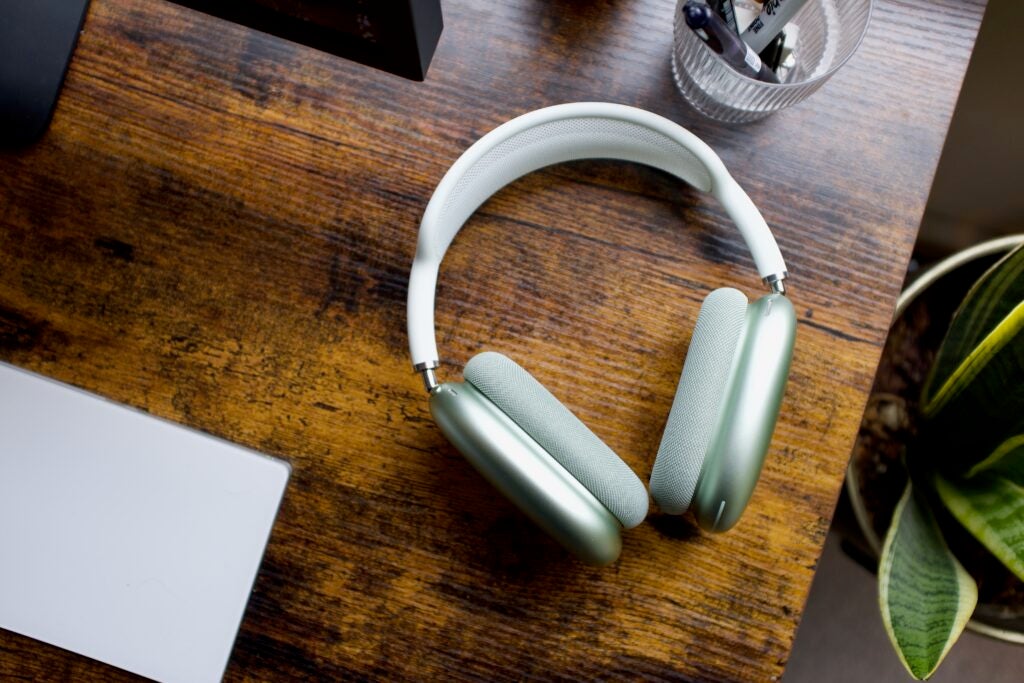
AirPods Max
Best over-ear headphones for iOS devices
Pros
- Wonderful, versatile sound
- Many clever design elements and strong build quality
- Spatial audio can be immersive for the apps that support it
- Strong connection to the Apple ecosystem
Cons
- Lack of ‘off’ button is annoying
- The included case is bad in just about every way
- Heavy and can’t be folded down
- The high price can’t be ignored
The AirPods Max are Apple’s only over-ear headphones, and as a result they offer the best iOS integration of all the headphones on this list.
The AirPods Max have a striking design with large metal cups, a mesh band and a dial that’s cribbed from the Apple Watch. Despite being far heavier than the Sony WH-1000XM5 and the Bose QC Ultra Headphones, the AirPods remain comfortable to wear with their weight distributed across the headband to the point where we could barely feel them at all.
However, there’s no IP rating, so we wouldn’t recommend using them at the gym, but very few over-ear headphones have an IP rating anyway. The physical buttons and dial make it easy to move through tracks, adjust the volume and toggle between noise cancellation and transparency modes, while the ANC itself is some of the best around with the adaptive setting doing a fantastic job of altering the noise cancellation levels to fit your environment.
The transparency mode is excellent too, and the addition of spatial audio makes Disney Plus and Apple TV+ content feel much grander and less flat than it does with a regular pair of over-ears. However, some features like spatial audio and seamless quick device switching are only supported on iOS devices.
When it comes to audio performance the AirPods Max are excellent, though perhaps not as big of an improvement over the Bose and Sony headphones to justify the higher price. The custom 40mm driver, dual H1 chips and adaptive EQ work together to offer a balanced and versatile sound that impressed us across a wide range of songs and genres. There’s plenty of bass and higher frequencies never sound harsh or distorted,
The 20-hour battery life should get you through a long flight but it isn’t class-leading and the storage case offers little protection. However, if you’re looking for a pair of Apple-centric over-ears, you won’t find better than the AirPods Max.
Reviewer: Max Parker
Full Review: AirPods Max

Poly Voyager Surround 80 UC
Best over-ears for office use
Pros
- Very comfortable design
- Lots of connectivity options
- Great mic quality
Cons
- Large design
- Not very portable
- No stated Bluetooth codec support
Since the pandemic, there’s been a rise in people using headphones for online meetings, but rather than using the a pair of headphones that might not offer the best call quality, why not get a pair designed specifically for the task?
That’s where the Poly Voyager Surround 80 UC enters the discussion. Available in a few different configurations, the version we tested is rather expensive but if you look around £259 is one of the cheaper prices on offer (and far less than the £466 quoted on some sites).
They’re not the smallest headphones for an over-ear, an aspect our reviewer had qualms with, but they’re comfortable to wear as using them across a full workday, the reviewer noted there was heat build-up that they noticed, nor any skin irritation. Build quality is sturdy and well-constructed, which you’d expect for the outlay.
The noise-cancellation is effective, not quite up to the level of the Sony WH-1000XM5, but strong enough to drown out the drone of an everyday office. Wireless call quality is excellent, with the ten ‘boomless’ mics working well to capture your voice and render it clearly. Use the USB connection and we noted an even better call quality performance.
Bluetooth multipoint is supported for connecting to two devices at once, while there’s certification with Microsoft Teams.
And if you were to use these headphones for music, then they put in a good performance. Bass is generally warm and energetic, working well wiht genres such as punk and dance that require plenty of bass. Clarity in the treble region allows for good levels of detail, and there’s a nice degree of stereo separation too. We don’t feel you’d be disappointed if you were to use these headphones for music while you work. For a cheaper option there’s the Logitech Zone Vibe Wireless, although these office headphones don’t boast noise-cancellation.
Reviewer: Andrew Williams
Full Review: Poly Voyager Surround 80 UC
We also considered…
We’ve reviewed
See all reviewsFAQs
The Planet Buddies Volume Limited Headphones cannot be pushed past 85dB, which is the limit recommended by the World Health Organisation to help prevent noise-induced hearing loss. This can be especially useful on kids headphones as children might not recognise when their music is too loud.
ANC stands for Active Noise Cancelling, a feature designed to block out distractions and outside noise when you wear your headphones.
Over-ear headphones have larger ear cups that envelope the ears and generally offer better passive noise isolation. You might also find them to be more comfortable than on-ear headphones, but this comes down to personal preference.



